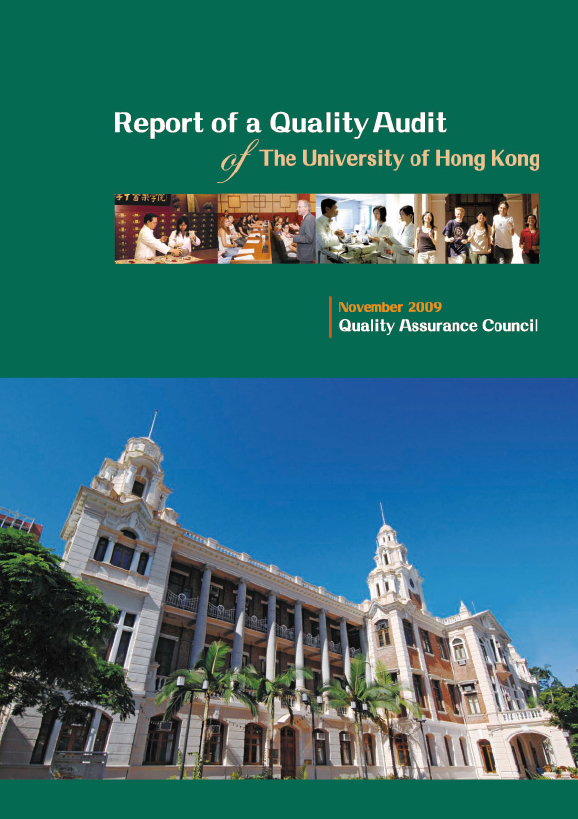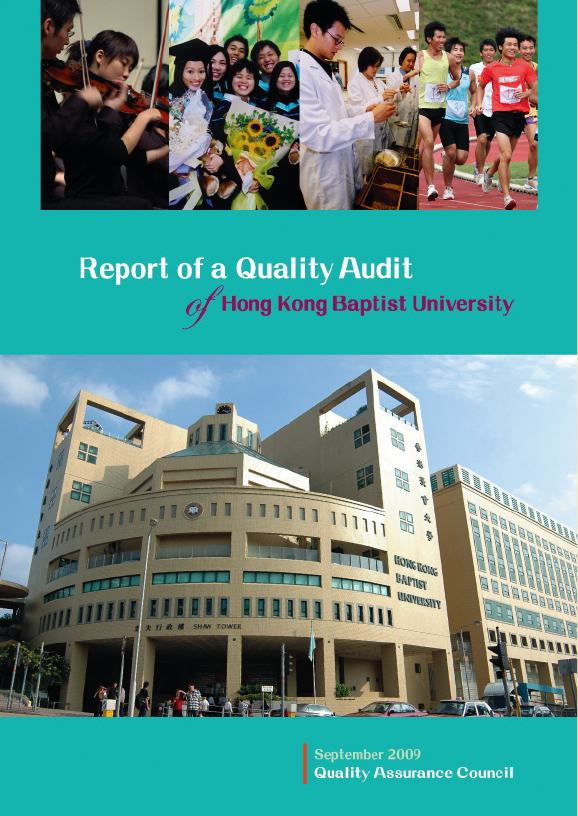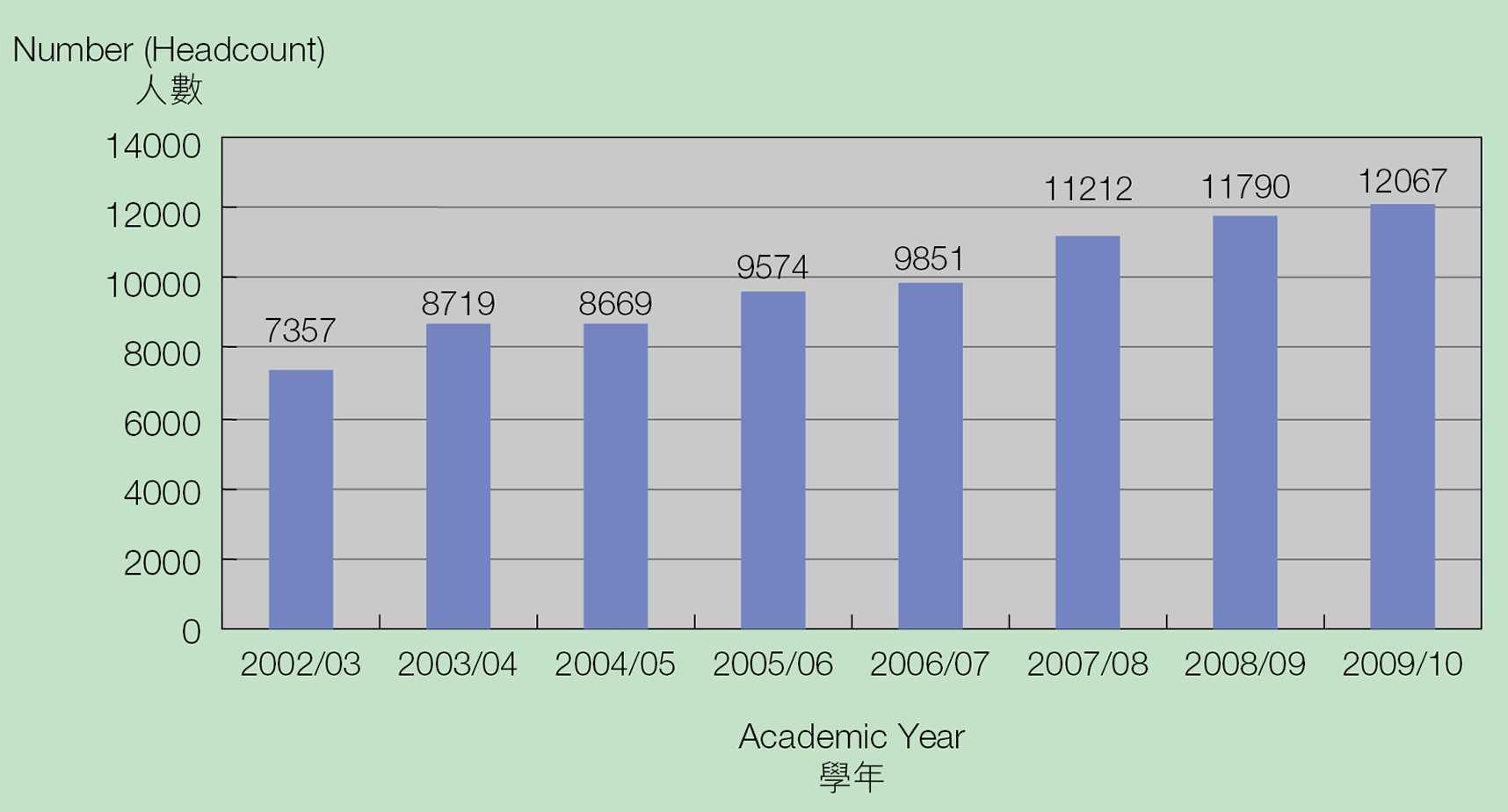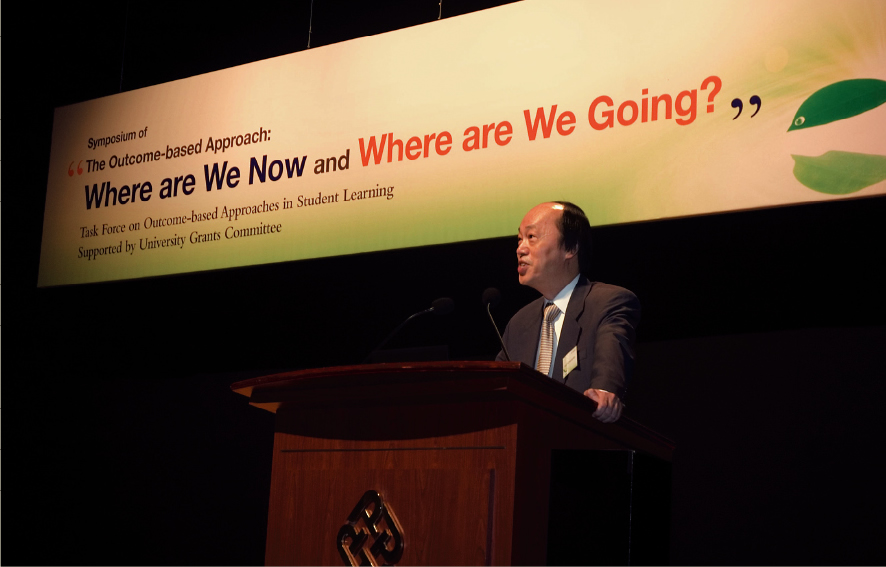|
Quality
The UGC is committed to safeguarding
and promoting the quality of UGC-funded institutions and their
activities. The QAC established in April 2007 under the UGC, operates
at arm's length from the Committee to provide third-party oversight.
One of the QAC's core operational tasks is to conduct quality audits
on individual UGC-funded institutions to assure the quality of their
educational provision (however funded) at first degree level and
above, with due regard to institutions' autonomy and self-accrediting
status.
The quality audits are conducted by
independent audit panels appointed by the QAC, which consist of local
and overseas academic as well as lay auditors drawn from QAC's
Register of Auditors. In 2009-10, good progress was made with the
publication of two audit reports on HKBU and HKU, and the commencement
of three more audits, i.e. on LU, HKUST and CityU.
Apart from quality assurance, the
UGC is also committed to enhancing teaching methods, the language
proficiency of students and student learning outcomes. To this end,
the UGC provides institutions with the Teaching Development Grants and
Language Enhancement Grants, and implements the Common English
Proficiency Assessment Scheme. The UGC also promotes outcome-based
student learning approaches, which are increasingly used in the global
scene.
(A) Quality Audits
The
QAC's approach to quality audits stems from the recognition that
institutions have distinct and varied missions, reflecting the UGC's
vision of a differentiated yet interlocking higher education system.
Recognising that each institution has objectives appropriate to its
mission, the QAC defines quality in terms of 'Fitness for Purpose', where institutions have different purposes which reflect
their missions and the role statements they have agreed with the UGC.
The QAC sees itself as forming a partnership with institutions in
assuring and enhancing the quality of student learning experience in
Hong Kong, for the benefit of all concerned.
A
quality audit examines whether an institution has procedures in place
appropriate for its stated purposes, whether it pursues activities and
applies resources to achieve those purposes, and whether there is
verifiable evidence to show that the purposes are being achieved. The
QAC's Audit Manual sets out how the QAC conducts audits and what it
expects to receive from institutions.
It
is expected that all eight UGC-funded institutions will be audited by
2011 in the first audit cycle.


|
Audit
reports of HKBU and HKU published in September and November 2009
respectively |
(B) Teaching and Learning
Teaching
Development Grants (TDGs)
"Teaching
and learning" is central to the roles of all institutions. To
encourage institutions to adopt innovative approaches to teaching, and
to improve the quality of the learning environment, the UGC provides
institutions with TDGs. For the 2009/10 academic year, the UGC
disbursed a total of $37.6 million as TDGs. Allocation is mainly based
on the student numbers at undergraduate and sub-degree levels.
(C) Language Proficiency of
Students
Language
Enhancement Grants (LEGs)
Enhancing
students' language proficiency, which is an essential quality of a
globally competitive graduate, is among the top items on UGC's
agenda. With the Committee's support, a Symposium on "Language
Issues for University Graduates" under the "3+3+4" Symposia
series, was organised by HKBU and CityU in January 2010 to promote
exchanges on this important topic.
To
provide additional support to institutions for promoting students'
language proficiency in both English and Chinese, the UGC provides
institutions with LEGs, which are on top of resources from their block
grants and other sources. A total of $112.4 million was allocated as
LEGs in 2009/10 academic year. The amount is allocated based on
institutions' respective student numbers.
Common
English Proficiency Assessment Scheme (CEPAS)
CEPAS
is another language-related initiative undertaken by the UGC. It aims
to:
●
enhance students' awareness of the importance of English language
proficiency;
●
set up a common framework for assessing and documenting graduating
students' English proficiency;
●
provide an internationally recognised assessment for students who
wish to pursue further studies or enter
the workforce; and
●
enable the UGC to have a better understanding of students'
English abilities.
Final year undergraduate students of
all UGC-funded institutions may participate in the Scheme on a
voluntary basis. They will be reimbursed with the test fee if they
agree to have a statement included in their transcripts indicating
their participation in CEPAS. The current testing instrument under
CEPAS is the International English Language Testing System (IELTS),
which is an internationally validated and adopted English test.
Almost 12 100 final year students,
or about 68% of all full-time and part-time final year undergraduate
students of the UGC-funded institutions, registered for taking IELTS
under CEPAS in 2009/10 academic year. The number of participants was a
record high, and represented an increase of 2.3% as compared to that
in 2008/09 academic year. Given the voluntary nature of CEPAS, the
number of participants demonstrates that students attach great
importance to their English proficiency.
| Chart 5: Number
of Participants of CEPAS from 2002/03 to 2009/10 |

|
(D) Outcome-based Approaches (OBA)
in Student Learning
In
respect of understanding and evaluating quality, internationally there
has been increasing interest in outputs (e.g. goals and ends,
procedures and results). Central to our commitment to enhance quality,
the UGC advocates the OBA initiative. The promotion of OBA to student
learning allows institutions to articulate what they intend their
students to achieve and focus their education effort accordingly, and
itself leads to better teaching and learning.
The
UGC is facilitating institutions to move forward by building up their
OBA capacities. The UGC provided additional funds to the institutions
to facilitate staff release to weave "outcomes" into their
academic curricula, and shared with institutions the international
experience, the challenges and stakeholders' concerns, and ways to
overcome them. The UGC also recognises that the curriculum revision
under "3+3+4" represents a good opportunity for adopting OBA. To
share experience in implementing OBA among the sector, two symposia
were held in 2009 - "The Outcome-based Approach: Where are We Now
and Where are We Going" organised by the Taskforce on
Outcome-based Approaches in Student Learning in May and the "Enhancing
and Assessing Students' Learning Outcomes for the New 4-year
Curriculum" in December organised by the Hong Kong Polytechnic
University, with UGC's support, under the "3+3+4" Symposia
series.
 |
Professor
Edmond Ko, UGC representative at the Taskforce on Outcome-based
Approaches in Student Learning, delivering the welcoming remarks
at the May 2009 Symposium |
|

















